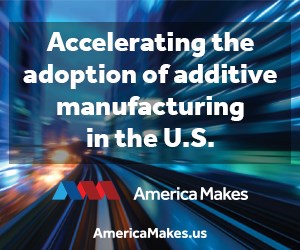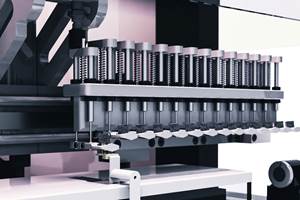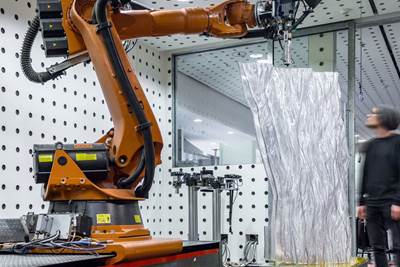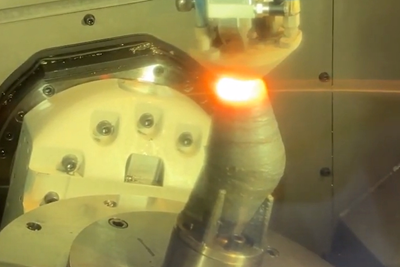Q.ANT’s Compact Quantum Sensor Analyzes Particles for Improved Quality Control in Additive Manufacturing
The particle sensor measures the size, speed and trajectory of particles in liquids and gases.
The quantum particle sensor detects and classifies the particles in printing powders according to size, number, composition and, in future, shape. Source: Q.ANT
Startup Q.ANT’s compact and industrialized particle sensor measures the size, speed and trajectory of particles in liquids and gases. This particle analysis gives additive manufacturers more process control, enabling better quality, higher efficiency and more sustainable methods.
The sensor is based on quantum technology that can be used to measure the properties of the printing powder in real time in a way that is easy to handle. In the future, with the help of artificial intelligence (AI), the shape of the particles can also be determined.
In additive manufacturing (AM), the properties of the printing powder with particles from metal, plastic or ceramic play a decisive role with the size, number and composition of the fine particles influencing the course of the process.
The sensor comes in two versions: The Q.P2 sensor analyzes particles in a range from 2 µm to 50 µm, while the Q.P20 sensor measures particles from 20 µm to 700 µm. Now, through a partner program, Q.ANT can customize the sensor for specific applications.
Whether for powder production itself, in reprocessing or for the powder-based AM of components, a mixture that is as homogeneous as possible and high quality ingredients is crucial for the process flow. This means that different powder granulations can each result in specific material properties. In the powder reprocessing process, in which unused particles from the powder bed are reused, modified particles must be filtered out.
The Q.ANT particle sensor provides powder manufacturers and processors with immediate feedback on the process. The sensor detects and analyzes particles in raw materials and feedstock, regardless of the medium, which can be liquid, gaseous or powdery. Process monitoring, process optimization and quality control are therefore possible in real time.
AI Can Classify Particles According to Their Shape
The applied quantum technology enables conclusions to be drawn about the size, number and distribution of the individual particles. In future, the quantum-based sensor will also be able to classify shapes. The AI built into it can be trained to distinguish predefined shapes, such as elliptical or spherical particles from round ones. To do this, it must be trained for specific use cases.
Partnership Programs for Specific Use Cases
Pilot projects have demonstrated very high data quality. For example, the AI can distinguish particle agglomerates in metallic powders from individual particles. To develop further use cases for specific applications, Q.ANT offers partnership programs.
“This gives industry early access to this new solution for particularly challenging problems without having to go through long development cycles,” says Vanessa Bader, Q.ANT customer project engineer. “Our partners have the opportunity to work with us to integrate the quantum sensor into their production processes and adapt it to their applications.”
Compact Sensor Is Easy to Handle and Fast to Integrate
The company says the compact quantum sensor fits on any laboratory worktable, and is faster and easier to handle compared to the time-consuming conventional sampling process for analyzing particles. A normal computer is all that is needed to transfer and visualize the measured data. The sensor is immediately ready for use via a website in the browser.
“Nothing needs to be installed. You don't need any extra computing power or complicated training for employees,” Bader says. The data itself is analyzed using a small server that is built directly into the particle sensor.
Related Content
Renishaw and Plastometrex Collaborate to Increase Precision, Efficiency of AM Mechanical Property Analysis
Plastometrex’s PLX-Benchtop facilitates rapid, direct testing on different sections of additively manufactured parts, delivering comprehensive stress-strain curves in minutes to provide a more precise evaluation of a part’s mechanical properties.
Read MoreZeiss Hosts Digital Event for Metrology and Software April 15-19
The event is designed to offer a unique opportunity to gain new, interesting insights and exchange ideas with industry experts from all over the world.
Read MoreNikon Acquires Avonix Imaging
Nikon aims to strengthen its X-ray digital inspection solutions by combining its rotating target X-ray sources and proven software with Axonix Imaging’s expertise in the design of configurable systems, controls and product handling.
Read MoreDimensionics Density Offers Automated Density Determination for AM-Produced Parts
Formnext 2023: Dimensionics Density’s automatic density determination technology provides automated, accurate and repeatable density determinations for additive manufacturing production.
Read MoreRead Next
3D Printing Brings Sustainability, Accessibility to Glass Manufacturing
Australian startup Maple Glass Printing has developed a process for extruding glass into artwork, lab implements and architectural elements. Along the way, the company has also found more efficient ways of recycling this material.
Read MoreAt General Atomics, Do Unmanned Aerial Systems Reveal the Future of Aircraft Manufacturing?
The maker of the Predator and SkyGuardian remote aircraft can implement additive manufacturing more rapidly and widely than the makers of other types of planes. The role of 3D printing in current and future UAS components hints at how far AM can go to save cost and time in aircraft production and design.
Read MoreHybrid Additive Manufacturing Machine Tools Continue to Make Gains (Includes Video)
The hybrid machine tool is an idea that continues to advance. Two important developments of recent years expand the possibilities for this platform.
Read More



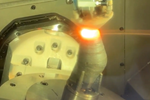
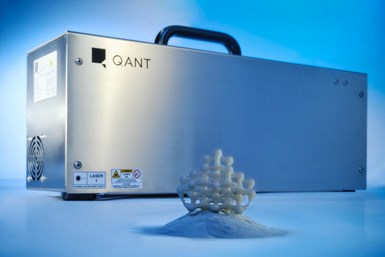
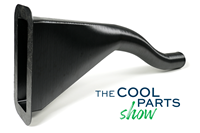

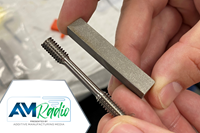

.png;maxWidth=300;quality=90)

